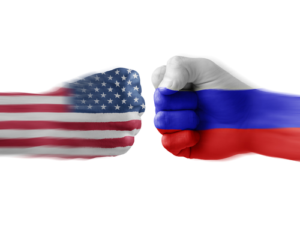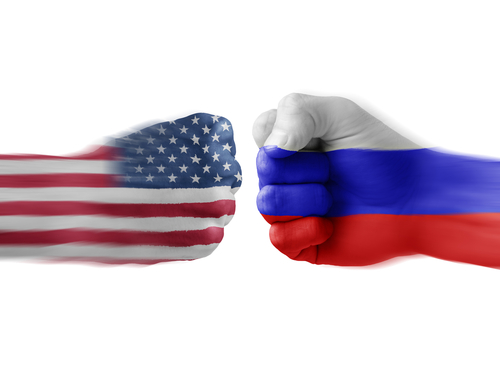 In a recent article posted on War on the Rocks, former Ambassador Chas Freeman pleaded for American strategists to seek partnerships rather than a never-quite-complete unilateral dominance of the world. Today, the United States maintains a sphere-of-influence that, Americans would like to believe, extends the entire world over. As threats mount and capabilities struggle to keep up, the U.S. faces challenges it cannot conquer alone. Some of the world’s most intractable problems were caused by unilateral American decisions and can only be solved by uniting disparate states – and non-states – unlikely to willingly acquiesce to alliances. Take the Islamic State – defeating it will require a solution borne of Saudis and Iranians, Syrians and Turks, Americans and Russians. Pretending the U.S. alone can solve the world’s problems is an idea shrouded in arrogance and destined to fail. Solving today’s global challenges require strong partnerships, and partnerships require an understanding and acknowledgement of other countries’ fears and interests.
In a recent article posted on War on the Rocks, former Ambassador Chas Freeman pleaded for American strategists to seek partnerships rather than a never-quite-complete unilateral dominance of the world. Today, the United States maintains a sphere-of-influence that, Americans would like to believe, extends the entire world over. As threats mount and capabilities struggle to keep up, the U.S. faces challenges it cannot conquer alone. Some of the world’s most intractable problems were caused by unilateral American decisions and can only be solved by uniting disparate states – and non-states – unlikely to willingly acquiesce to alliances. Take the Islamic State – defeating it will require a solution borne of Saudis and Iranians, Syrians and Turks, Americans and Russians. Pretending the U.S. alone can solve the world’s problems is an idea shrouded in arrogance and destined to fail. Solving today’s global challenges require strong partnerships, and partnerships require an understanding and acknowledgement of other countries’ fears and interests.
Russian-American relations provide one such example. Vladimir Putin rejects American claims of a global sphere of influence. Russian geopolitics rest on the idea that U.S. power has run amok and often does more harm than good. Putin predicates his strategies today on the idea that regime change is an insidious American attempt to expand and entrench a sphere-of-influence aimed at containing his country. Russia fears the encroachment of NATO in historically – and oftentimes, ethnically – Russian territory. American leaders have responded to these beliefs by reacting in ways that reinforce them – expanding military aid to Ukraine and other Eastern European states, publicly seeking regime change in Syria, and conducting drone strikes in any country, seemingly regardless of sovereignty.
Vladimir Putin has one goal: re-establish Russia on the global stage as a significant, respected actor. His methods to achieve that goal, however, are conflicted. He has alternatively attempted to portray Russia as a responsible world power capable of contributing solutions to global problems and, in other situations, caused problems that undermine the international order created and run by the U.S. In Syria, by offering to help remove chemical weapons used by the Assad regime, Putin sought partnership with the U.S. to present his country as amenable to potential solutions without resorting to regime change. Conversely, in Georgia in 2008, Ukraine in 2014, and the Baltic Sea today, Putin is seeking to ensure NATO receives the message that Russia maintains its own sphere of influence within which the West – particularly the U.S. – cannot interfere.
Fifty years ago, during the Cuban Missile Crisis, President Kennedy chose to respond to a constructive Soviet missive while ignoring Khrushchev’s second, more strident letter. Policymakers would do well to respond similarly to Putin by ignoring his provocations in Eastern Europe. The West ought not to be fooled into thinking Putin wants a return to the Cold War standoff that characterized the 20th century. Two articles on War on the Rocks indirectly illustrate the folly of returning to Cold War standoffs. They both outline the ways in which the EU and U.S. are outgunned and out-manned in Eastern Europe and argue that to balance Russian strength, frantic modernization and massive commitments of American forces are required. Yet, these articles misunderstand Putin’s intent, American strategy, and advocate actions that would exacerbate international tensions.
First, the U.S. must understand that it while it expects countries like Russia and China to become responsible world powers that operate within the international framework, it too must abide by these same rules. The U.S. cannot view the world over as its own sphere-of-influence. Today, the U.S. seeks UN approval; without it, American politicians seek NATO support; without that, they are too willing to go it alone. The U.S. would do well to understand why Putin flouts international conventions at will. By seeing international affairs through the eyes of another, the U.S. might be more critical and circumspect about supporting the expansion of NATO and the EU and support for regime change in places like Libya, Iraq, and Afghanistan.
Second, a new Cold War does nothing to advance American interests – instead, it unnecessarily recreates the dark days of great power struggle while draining resources away from more significant fights against fundamentalist Islam in the Middle East, Africa, and the West. Russia and the U.S. face similar Islamist demons across the world and should unite their efforts against al-Qaeda, the Islamic State, and terrorists in southern Russia. Demonizing Russia will increase Putin’s incentive to destabilize the Middle East by supporting the Assad regime and supplying Iran with technology like the S-300 missile system capable of denying U.S. air superiority over the country. Today, the U.S. military barely possesses the capability to pivot to the Pacific while maintaining an effective presence in the Middle East. Adding major new requirements in Europe will stretch the American military past its limits to a breaking point.
Instead, the U.S. should maximize its power by seeking partnerships with countries that can help policymakers accomplish their goals. Engagement with countries like China and Russia will do more to Westernize them than will conflict and standoff. The U.S. must maximize its cultural and economic power to build ties that bind Russia and China into the modern international order. Accepting China and Russia as partners will require the U.S. to relinquish its belief in a global American sphere-of-influence. The U.S. will not remain a unipolar hyper-power. Politicians and the public alike must accept that America cannot call every shot and will not get its way in every international issue. This strategy accomplishes two goals. First, it decreases the likelihood of major war while preserving a system favorable to American interests and second, it allows U.S. leaders to focus time, resources, and manpower on the most pressing geopolitical task today: defeating fundamentalist Islam.



While American nationalism holds that we are the global hegemon, untouchable by any other country, I agree that our resources are better focused on terrorist states that threaten global stability. A war of great powers, such as the US and Russia, would be disastrous for both sides, a war from which the benefits would not come close to the weight of the consequences.
Intersting read. The problem with building a relationship with Russia and China is that do will never work with fairly. However, building a relationship is better than a second cold war.
This strategy seems to go against the last century of our normal protocol and I love it. So what if those countries have communist leanings based in their history, LT Radcliffe is absolutely correct in saying that cooperation would do much more to westernize them anyways if that was the goal. Sustained conflict, whether overt or covert, just exhausts all of our resources in a global pissing contest over who gets to influence what.
I believe it is important to for alliances in todays growing world, especially when enemies tend to be non-state actors rather than conventional threats.
It seems that this coalition building is the foundation of which the current administration is operating. I dont know if the same will be said for the incoming one.
A direct conflict of the scale that would involve the US, China and Russia would be disastrous and have impacts though out the rest of the world as the seat of power was dislodged and the economic system underwent massive detrimental changes. Finding a way to cooperated at least moderately with Russia will become a key task as we move forward.